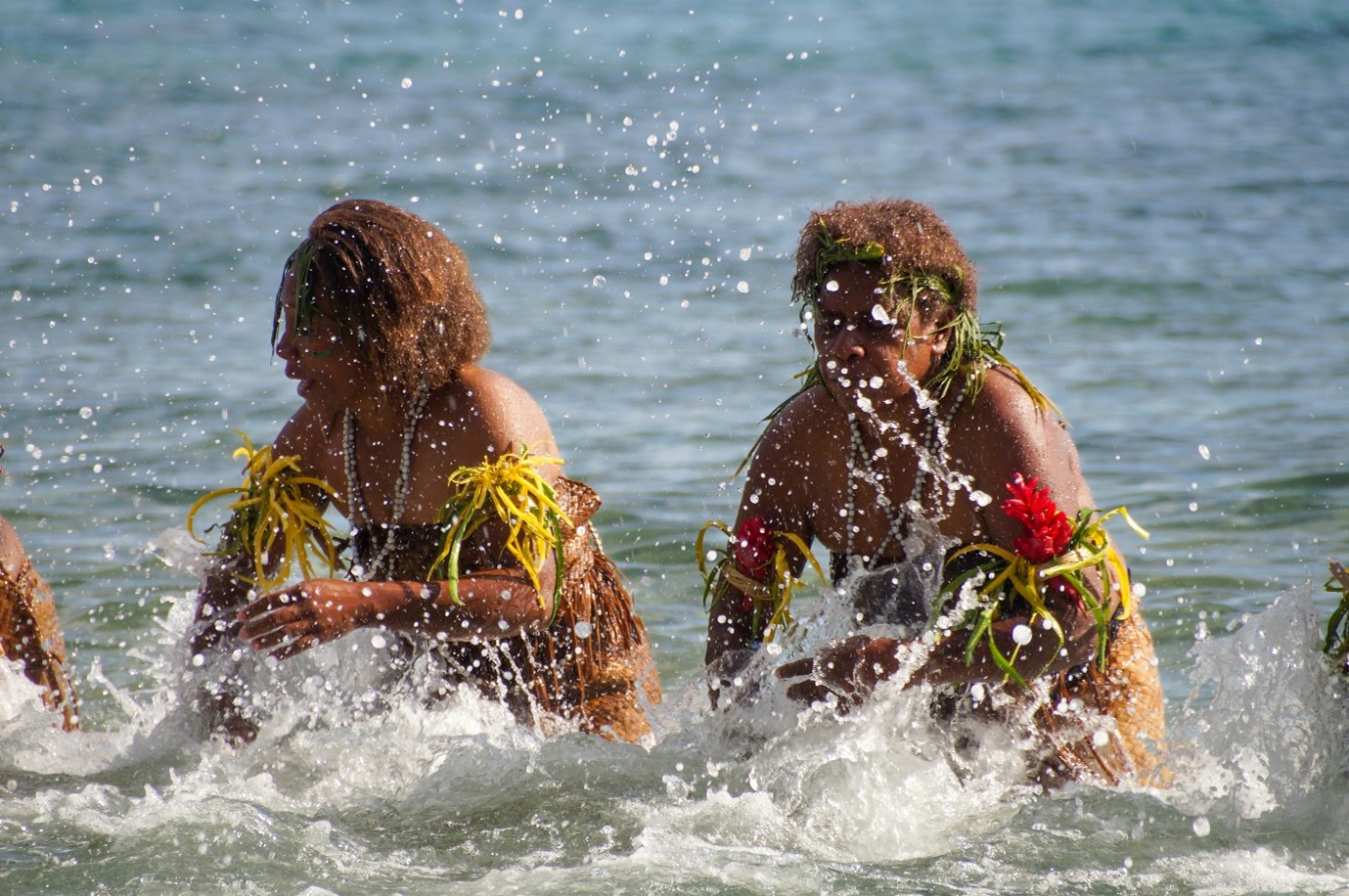
Reviving traditional water sports, traditional fish traps, the age-old practice of preserving fish and understanding how root crops are indicators to predict tropical cyclones are some of the highlights showcased in the 2024 tide prediction calendars with the theme of traditional knowledge and the ocean.
The annual tide prediction calendars are a popular product of the Climate and Oceans Support Program in the Pacific (COSPPac) and are designed and produced in the region by the Pacific Communityâs (SPC) Geoscience Energy and Maritime Division in partnership with the Bureau of Meteorology, Australia.
The 2024 calendar focusses on the work of COSPPac in developing a standardised methodology for collecting, storing and integrating traditional knowledge with science, policies and other areas.
Siosinamele Lui, Traditional Knowledge Officer with the COSPPac team at the Secretariat of the Pacific Regional Environment Programme (SPREP), works with National Meteorological and Hydrological Services (NMHS) on developing this standardised approach.
âTraditional Knowledge elevates and allows the science and the work of NMHS to be relevant, understood and applicable. For our Pacific communities, traditional knowledge allows national weather services and information or warnings to be localised, to be time specific, but also helps with the language and communication barrier,â said Lui.
She adds, âMost of what we understand of our current environment is rooted in traditional knowledge that has been passed through generations and has contributed to our continuous survival.â
At the Niue Meteorological Service, the team engages in a yam monitoring programme with the Niue Girls Brigade and the Makefu Youth and Girls Brigade. Yam vines are an indicator to predict tropical cyclones.
Robert Togiamana, Climate Traditional Knowledge Officer with the Niue Meteorological Service, said climate traditional knowledge plays an important role in adaptation to climate change.
"Climate traditional knowledge helps to improve and give us a better understanding of valuable forecast products. Traditional Knowledge is a driving mechanism of disseminating weather information to the community so people understand warnings better. Root crops such as yams, animal behaviour, and plants are a few of the examples to also help with decision-making, climate risk management and disaster prevention".
Calendar predictions are calculated by the Australian Bureau of Meteorologyâs Tidal Unit with information from the Pacific Sea Level and Geodetic Monitoring stations and a number of additional tide gauges around the region.

The National Meteorological Services distributes the calendars for 25 locations in the Pacific.
A related product to the tide calendars is the Pacific Tides App. Launched last year, it now has new features, which include geo-location, moon and sun phases and new stations.
âThe Pacific Tides App complements the tide calendars by providing reliable tide and moon phase forecasts, which anyone can access on a mobile phone. The new features are a commitment to continuous product improvement based on feedback from users and key stakeholders,â said Zulfikar Begg, COSPPac coordinator at SPC.
The Pacific Tides App, which can be used offline once a location has been selected, and data has been downloaded, works for both Android and Apple devices and can be downloaded from the relevant app store, https://opm.gem.spc.int/pacifictides/
Predictions can also be downloaded from the Pacific Ocean Portal or the Australian Bureau of Meteorology website.

